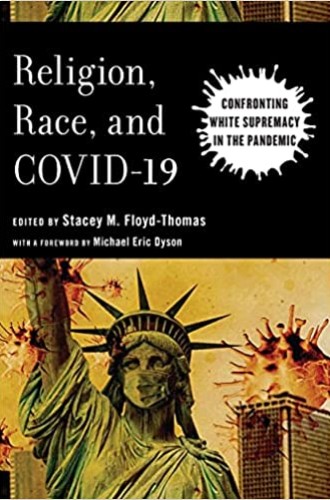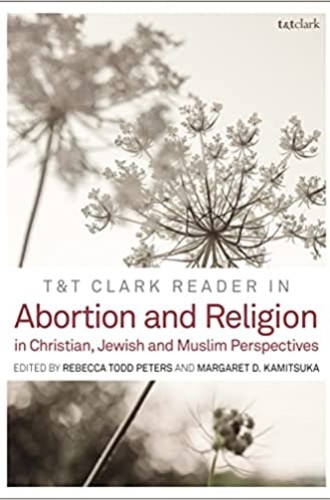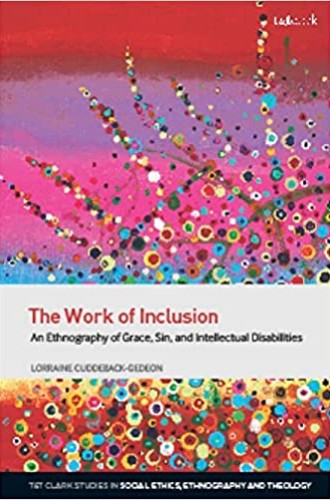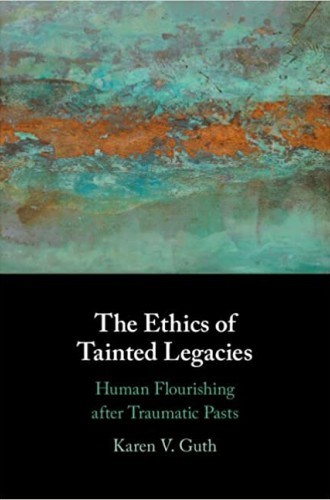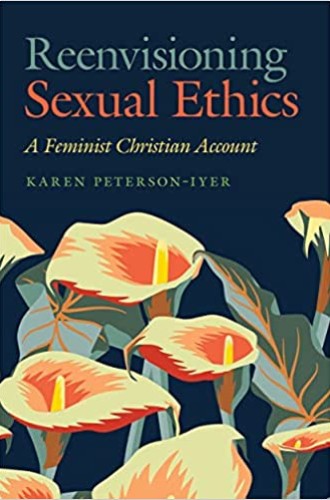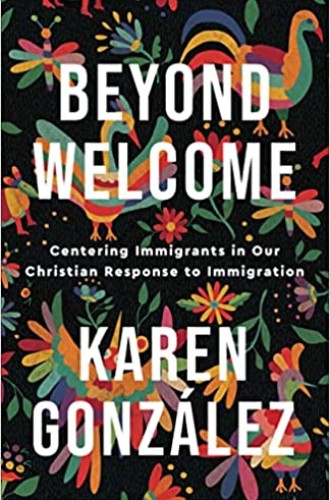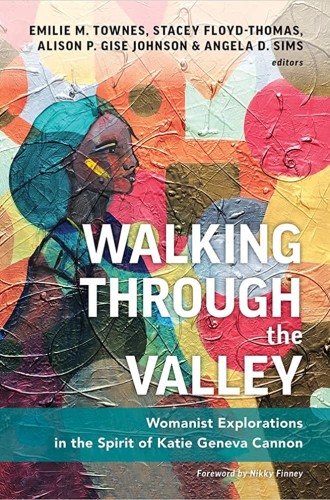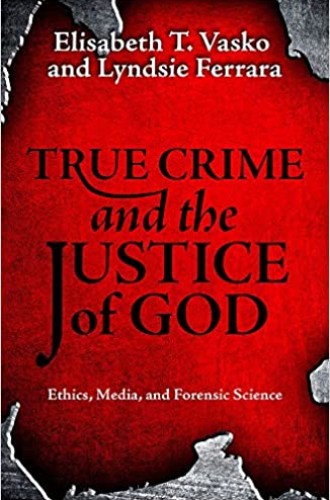Edited by Stacey M. Floyd-Thomas
New York University Press
White supremacy is a virus, and its spread is concurrent with COVID-19. This is the underlying theme of womanist ethicist Stacey Floyd-Thomas’s new edited volume. Featuring 12 scholar-activists across multiple disciplines, this book speaks to how “religion, race, and civil unrest are interconnected” in our present and ongoing pandemics. Some chapters focus on Black love, joy, and community, while others emphasize the harm done to Black, Latinx, and Indigenous communities by White evangelicals under the leadership of Donald Trump and his cronies. The voices of Asian Americans are conspicuously missing, apart from Blanche Bong Cook’s reflections on the marriage of her Black father and Korean mother amid the realities of White supremacy. Still, this book troubles readers to think more deeply about the impact of White supremacy—and the hope of Black and Brown love and defiance—as COVID-19 lingers on.
T&T Clark Reader in Abortion and Religion: Jewish, Christian, and Muslim Perspectives
Edited by Rebecca Todd Peters and Margaret D. Kamitsuka
T&T Clark
Published just seven months after the reversal of Roe v. Wade, this timely volume will be a useful resource for anyone eager to see beyond the pro-life/pro-choice, religious/secular binaries. With more than 50 essays, organized into sections with rich discussion questions, this text is perfect for seminary classrooms or small-group study. The diversity of topics, methods, and perspectives makes for a compelling volume, and the editors offer additional classroom and denominational resources at abortionreligionreader.com. Perhaps most powerful is how the book begins: by centering the voices of religious folks who have had abortions, offering them space to reflect on how their traditions helped them make sense of the morally difficult decision to end a pregnancy.
The Work of Inclusion: An Ethnography of Grace, Sin, and Intellectual Disabilities
By Lorraine Cuddeback-Gedeon
T&T Clark
Lorraine Cuddeback-Gedeon’s debut book follows the major shifts in advocacy for people with intellectual and developmental disabilities within the broader history of disability rights. How can folks with profound IDD do theology? What does sin look like within dependency relationships and in systems where folks with IDD are not treated as full moral persons and their care workers are not paid a living wage? Where is grace revealed among the work, play, and relationships of people with IDD? Cuddeback-Gedeon asks these theological questions through her ethnographic work at an occupational center for folks with IDD in northern Indiana. The strength of this book is its stories, which bring to life the questions it poses. Readers who can wade through the detailed history of names, insider debates, and acronyms will discover a well-researched and challenging perspective on disability rights.
The Ethics of Tainted Legacies: Human Flourishing after Traumatic Pasts
By Karen V. Guth
Cambridge University Press
Ethicist Karen Guth engages questions many of us find ourselves asking on the other side of Me Too. Do we ditch our Woody Allen DVDs and Michael Jackson albums? Do we still cite John Howard Yoder? Guth deploys the language of institutional betrayal and moral injury to address the tainted legacies of once-beloved scholars, directors, musicians, and institutions. She urges readers toward what she calls a reformer response to trauma: one that takes abuse seriously, recognizes victim-survivors as moral agents in their own right, and works for reform on a social and institutional level. Her method of weaving together feminist and womanist perspectives alongside current events and biblical texts of terror gives the book a rich flavor, and her conclusions are complex and concrete enough to satisfy. This timely text deserves a spot on the ethics syllabus this coming fall.
Reenvisioning Sexual Ethics: A Feminist Christian Account
By Karen Peterson-Iyer
Georgetown University Press
Feminist ethicist Karen Peterson-Iyer reenvisions values-based sexual ethics for today’s world. She grounds her work in five sexual norms for human flourishing: freedom, embodied health, emotional integrity, relational intimacy, and mutuality. She then applies her normative framework to four issues facing young adults today: hookup culture, sexting, sex work, and sex trafficking. The book is well-rounded: she draws on both Catholic and Protestant traditions, emphasizes the flourishing of individuals and society, and is attuned to issues of race, socioeconomics, and sexual orientation. Reminiscent of Marvin Ellison’s Making Love Just (2012) and Miguel de la Torre’s Liberating Sexuality (2016), this work offers a much-needed progressive Christian sexual ethic that advances the field further.
Beyond Welcome: Centering Immigrants in Our Christian Response to Immigration
By Karen González
Brazos
Do not be fooled by this book’s colorful cover and welcoming title; it unapologetically proposes an ethical response to immigration that will make many White church folks uncomfortable. Public theologian Karen González pushes her readers to resist the narrative of “the deserving immigrant” and welcome all immigrants as their full, cultured selves—including those parts that do not align with federal laws. A gifted storyteller, González punctuates her argument with tales: biblical narratives, stories of her childhood as a Guatemalan immigrant, anecdotes from her time teaching English in Kazakhstan, and stories she tells with care about her family and friends. Notably, she retells the Joseph narrative as a story of assimilation (“It makes me wonder whether he felt pressured to prove his Egyptian-ness”) alongside her own. This book is readable and compelling enough for the average layperson, but ultimately it is for all of us.
Walking through the Valley: Womanist Explorations in the Spirit of Katie Geneva Cannon
Edited by Emilie M. Townes, Stacey Floyd-Thomas, Alison P. Gise Johnson, and Angela D. Sims
Westminster John Knox
The womanist scholars who edited and contributed to this volume were shaped academically and personally by Katie Geneva Cannon, the mother of Black womanist ethics. Cannon asserted that “Black women’s moral wisdom” constituted “sacred texts,” thus birthing a new canon of theo-ethical thought centered in Black women’s experience and literature. What better way to honor Cannon’s legacy than by bringing her work into new realms of discourse—from climate change to the carceral system—and new methods of inquiry? Every essay in this volume is beautifully written, places Black women’s stories at the center, and aims to invite readers into Cannon’s work of “debunking, unmasking, and disentangling” the death-dealing systems we participate in and are oppressed by. Reading this collection will likely compel you to snag a copy of Cannon’s own Katie’s Canon from the seminary library.
True Crime and the Justice of God: Ethics, Media, and Forensic Science
By Elisabeth T. Vasko and Lyndsie Ferrara
Orbis Books
“Why does true crime matter for Christian ethics?” ask ethicist Elisabeth Vasko and forensic scientist Lyndsie Ferrara. To them, it matters greatly to how our moral imaginations are formed. Vasko and Ferrara argue that true crime—whether podcasts, Netflix docuseries, or television procedurals—cannot hold the intricacies of how crime actually plays out in the United States, especially in its gendered and racialized forms. In short, true crime “normalizes injustice.” The authors provide guidelines for readers, especially those who consider themselves “good white liberals,” to engage the realities of crime: to welcome the discomfort and longtime work of racial justice, become more media literate, and engage politically. This is a book for true crime junkies as well as those who are perplexed by White women’s obsession with true crime. With its accessible language and definitions, it will also serve as an excellent introduction to applied Christian ethics.


